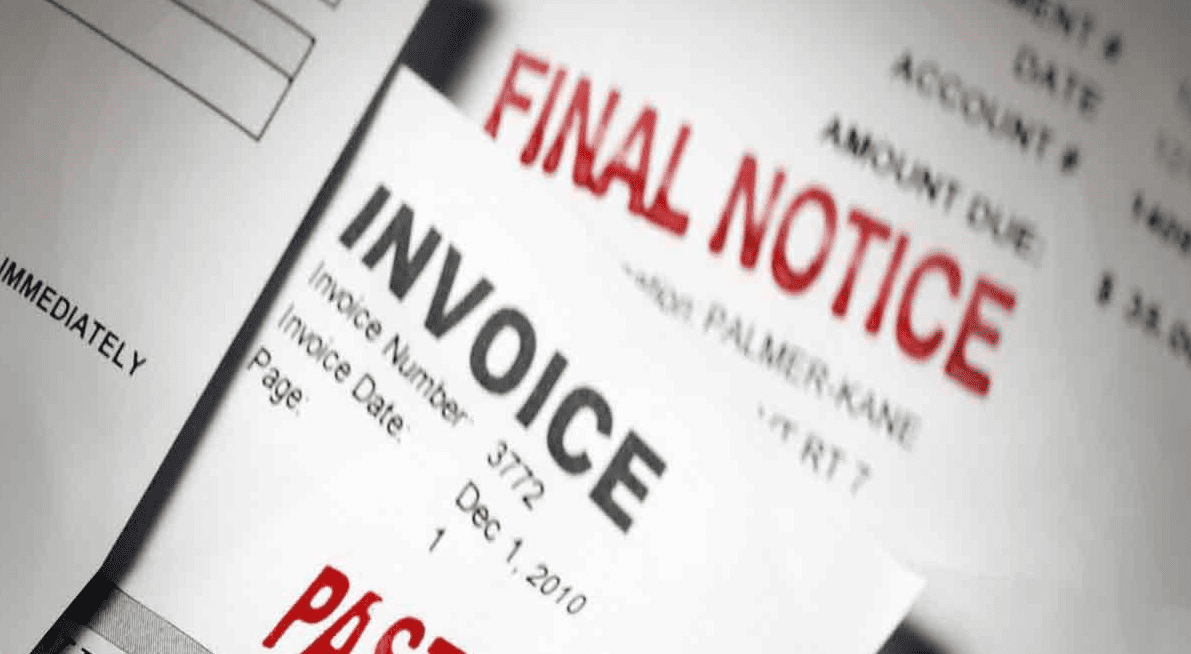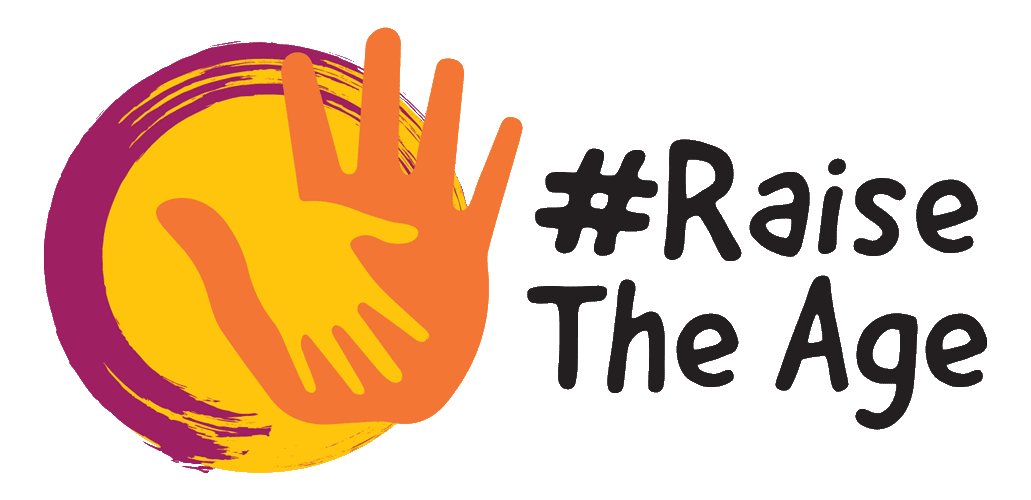Is there a Default Judgment made against you?
A “Plaintiff” is the person who has a claim against another person and initiates a civil lawsuit in Court with regards to that claim.
A “Respondent” is the person against whom the claim exists and is the one who is to respond to the lawsuit.
A Plaintiff can apply for a Default Judgment against a Respondent, when the Respondent fails to file an appearance or a Defence within the time prescribed by the relevant rules. The time limit is often 28 days after the Statement of Claim was served by the Defendant. If the Defendant has not responded in this time, the Plaintiff can apply for a Default Judgment. The Plaintiff has 9 months to apply for a Default Judgment, after which the court will just dismiss the case, because nothing has been done.
If you have been served with a Default Judgment by the Sheriff of the court, you can proceed to ask the court to set aside the judgement. Setting aside a Default Judgment means it will be cancelled and the Defendant will be given extra time to file a Defence. The court will set aside a judgment, provided it is satisfied hat:
- The Defendant had sufficient reason for not lodging the Defence within the time limit or failure to appear in Court;
- That you do in fact have an arguable and genuine Defence; and
- Any other reason sufficient for the court to reopen the Proceedings.
Even if the proceedings are reopened, you might be asked by the Court to pay Plaintiff’s Costs, especially if you do not have an arguable Defence.
If you have a Default Judgment made against you or if you are unsure whether you have a valid Defence against the claim filed by the Plaintiff, we would highly recommend that you obtain independent legal advice.
Our team at Freedman & Gopalan Solicitors is here to assist and guide you through these tough times. Please do not hesitate to contact us on 02 8917 8700 to speak with our lawyers, or feel free to leave an enquiry via email, and we will be in touch as soon as possible.
If someone owes you a debt and you have exhausted all your efforts to recover the funds, we would highly recommend for a formal letter of demand to the sent to them.
What is a letter of demand?
A letter of demand for payment of debt is a formal letter which provides the debtor with one final chance of taking action and conveys the seriousness of which the matter is being treated. It generally includes the following: -
- The debt amount owed;
- Why the debt amount is owed (e.g. pursuant to the contractual obligations between the parties such as an exchange of a service for a fee);
- How the amount is calculated;
- Details of your attempts made to collect the debt;
- A time limitation on when the payment should be received (e.g. 7 to 14 days of the date of the letter); and,
- A formal notice should no response or payment be received (e.g. legal proceedings to be commenced).
Whilst you do not need a lawyer to write a letter of demand, the greatest advantage of retaining a lawyer is that the letter will be on a law firm’s letterhead. This in itself will indicate to the debtor that you are treating this matter seriously, and the debtor will then more likely attend to the payment.
If you require any further assistance in recovering a debt, please do not hesitate to contact our office on 02 8917 8700.
Many parents are open to financially assisting their child to purchase their first property, particularly in today’s competitive housing market. In Australia, it is legally presumed that advances of money provided from a parent to their child are a gift (and not a loan), but what are the consequences of choosing one over the other?
- Loaning the funds
It is important to consider the risks of providing the funds to your child, particularly when your child is married. This is a question that many family lawyers come across when the marriage has irrevocably broken down. How then can you retrieve the funds? If it was provided by way of a loan, the Family Court generally considers this as a liability of the marriage and is borne by both parties jointly – regardless of whether it was initially intended to both parties or only in your child’s name. Liabilities form part of the total property pool and naturally will decrease the net value when it comes down to distributions during property settlement. However, without solid evidence, the Family Court tends to be sceptical whether the funds were a loan.
- Evidencing a loan
At the time of providing financial assistance to your child, we would highly recommend that a loan agreement is formalised in writing and executed by all parties. Here, the loan amount will be specified as well as the loan amount and how and when the money should be repaid. This will ensure that the funds can be retrieved. If you require any assistance in drafting the loan agreement, please do not hesitate to reach out to Freedman & Gopalan Solicitors, and we will be happy to assist you.
So, what happens then if there was no such evidence supporting the claim of the loan?
- Gifting the funds
Unfortunately, the funds provided will then be considered as a gift, and you could face the risk of your child’s partner seeking a share of that matrimonial asset. This is why we would highly recommend for you to get an agreement documented and evidence the funds by way of a loan.
If you have any further concerns, please do not hesitate to contact our office on 02 8917 8700.
A new campaign has been launched this year to stop children as young as 10 from being imprisoned, calling for the age of criminal responsibility in all the Australian states and territories to be raised to 14, so that anyone younger than this cannot be found guilty of a criminal offence.
Currently, approximately 600 children between 10 and 13 years old are incarcerated each year, of which 70% are Aboriginal or Torres Strait Islander.
The campaign argues that criminal behaviour among young children is linked to trauma, neglect and unaddressed mental or physical health problems, and that community-led solutions are better placed to rehabilitate these children.
The reason that such young children are being put into prisons is because Australia has one of the lowest ages of criminal responsibility in the world. Scientific evidence is that while children aged 10 are imprisoned in Australia, their brains may not be mature enough to understand the consequences of their criminal actions. Research shows this immaturity can affect a number of areas of cognitive functioning including impulse control, reasoning and consequential thinking.
The age of criminal responsibility is 14 years old in China, Spain, Germany, Russia, Sierra Leone, Azerbaijan, Cambodia and Rwanda. Internationally, the United Nations Committee on the Rights of the Child has also recommended the age of criminal responsibility to be 14 years old. The campaign argues that in order for Australia to comply with our international obligations, we should be raising the age.
This campaign also focuses on the fact that these laws disproportionately impact those in Aboriginal and Torres Strait Islander communities, who are introduced to the criminal justice system at an early age. In contrast, young offenders in other communities are often diverted away from prisons, and given support and opportunities to rehabilitate in their communities. Aboriginal or Torres Strait Islander youth aged 10-17 are 23 times more likely to be in detention than non-Indigenous young people. When individuals are detained as children, they are likely to have further interactions with the criminal system and the authorities later in their lives. The Australian Institute of Health and Welfare has noted that raising the age of criminal responsibility to 14 years, for example, has the potential to reduce the likelihood of life-long interaction with the criminal justice system.
Many readers will recall the investigation into the Don Dale Detention Centre in the Northern Territory which triggered the Royal Commission into Juvenile Detention in the Northern Territory. This facility continues to operate, and some children under 14 continue to be held in this facility. To read more about the changes since this time, click here.
This campaign is being supported by the Human Rights Law Centre, National Aboriginal and Torres Strait Islander Legal Services, Law Council of Australia, Change the Records, Amnesty International Australia, Australian Medical Association, Royal Australasian College of Physicians and the Public Health Association of Australia.
To read more about the campaign, go to www.raisetheage.org.au.
EDIT (27 July 2020): As of the date of writing, the Australia Attorneys-General have delayed the decision until 2021.
What is mental abuse?
Psychological abuse is often termed as emotional or mental abuse. This is categorised by a person subjecting or exposing another person to a behaviour that may result in psychological trauma, including anxiety, chronic depression or post traumatic stress disorder. The effects of mental or emotional abuse can be painful and destructive, both in short and long term. Survivors often feel it is difficult as they are left to deal with low self-esteem, anxiety, depression and the feeling of helplessness.
What are the signs of abuse?
Possible signs include intimidation, coercion, ridiculing, harassment, treating an elder like a child, isolating either from family, friends or other regular activities, use of silence to control behaviour and yelling or swearing which results in mental distress.
This leads to often the victim ending up with insomnia, low self-esteem, uncooperative and aggressive behaviour, lost of appetite, weight loss, tearfulness and anger.
Who can be an abuser?
An abuser could be anyone. It could be someone you know; someone you work with or someone you live with. It could be your partner, husband or wife. It could be staff who cares for you, like a nurse or assistants in your home. It could be your family or friends.
Can you charge someone for mental abuse?
Filing a complaint against the abuser in workplaces with the HR department is the right place to initiate your complaint. However, it is a difficult process for a victim. Additionally, it could be challenging to prove, as victims often endure additional emotional and financial damages by pursuing it.
Of course, if it is by way of verbal abuse and it is inflicted on you by your partner, husband or wife, you can proceed to consider your options as to whether you want to obtain an Apprehended Violence Order against your partner, husband or wife or whether the time has come for you to make a decision whether to walk out of your relationship.
After putting up with years and months of humiliation, negating, criticising, character assassination, yelling or public embarrassment, you need to consider your option as to whether you need to complain about it and put an end to it.
In Australia, you can contact 1800 RESPECT or 1800 737 732 in order to have a confidential discussion about the mental abuse that you are put through, to seek counselling and support services. Of course, please call 000 if you are in any danger.
Please also visit www.1800respect.org.au for further information, and if you are worried whether there could be traces after you have visited that website, there is also a specific link providing you with tips to use that site in order to ensure that it cannot be traced. Kindly proceed to check the site www.1800respect.org.au. An interpreting service is also provided if you contact 13 14 15.
Never feel that you are alone, and you have to put up and shut up.
If you wish to discuss your legal options, please do not hesitate to contact Freedman & Gopalan Solicitors on 02 8917 8700.
On 21 July 2020, Prime Minister Scott Morrison, announced that JobKeeper will continue until 28 March 2021, extending beyond the initial September end-date. However, commencing from 28 September 2020, the payments will be reduced and based on a new Two-Tier system, and again reduced from 4 January 2021 onwards.
Companies/businesses will still be required to re-qualify for JobKeeper after September and prove that their turnover has still decreased by 30% or more with reference to their actual turnover in the June and September 2020 quarters. The idea behind the reduced payments is so that small businesses in particular are not left without support as the restrictions ease and people are again spending money.
From 28 September 2020 to 3 January 2021, the payment rate will decrease from the current $1,500 per fortnight to $1,200 per fortnight for eligible workers. However, this will only apply for workers who, prior to 1 March 2020, were working more than 20 hours per week. Whilst people who were working less than 20 hours per week on average prior to 1 March 2020, will receive $750 per fortnight.
From 4 January 2021, these payments will reduce to $1,000 and $650 per fortnight respectively.
The new ‘Two-Tier’ payment takes into consideration part-time rates given that around 1 in 4 workers on JobKeeper under the current payment regime were receiving a pay rise of approximately $550 per fortnight.
With the impending threat of a ‘second-wave’ of COVID-19 resurfacing, provide us with your thoughts in the comments below whether this is a positive step in the right direction or whether this is simply a significant unnecessary expense.
Having a dispute with your neighbour? Your rights and course of action.
Given the current circumstances surrounding COVID-19 and self-isolation, people are spending larger amounts of their time at home. Whilst this has several benefits, it is not without disadvantages also.
One disadvantage might be increased tensions between yourself and your neighbours. Are you and your neighbour currently arguing over noise complaints such as loud music or a constantly barking dog? Or have you noticed that your neighbour’s branches are overhanging into your property?
Whatever the dispute may be between you and your neighbour, we are here to help!
How do you resolve an issue with your neighbour?
The quickest and cheapest way to try and fix a problem is to talk with your neighbour. We suggest approaching your neighbour in a friendly (and socially distant) manner, in order to discuss the problem. This will also help to maintain a positive relationship, making it easier to deal with other issues in the future.
If you and your neighbour can come to an agreement, you can put it in writing, and both sign it. The advantage of having the agreement in writing is that it can be used as evidence if the issue later proceeds further to a Court or a Tribunal.
What happens if you and your neighbour cannot come to an agreement?
If you and your neighbour cannot resolve the matter on your own, there are several options available to you: -
- Ask a third party for help: If you have talked to your neighbour and this has not resolved the issue, you can ask someone else to help. It is best to ask someone who is not emotionally involved in the dispute. This could include a friend or another neighbour.
- Mediation: You can contact Community Justice Centres (CJC) for help with free mediation. This is where an independent person called a mediator will help you and your neighbour discuss and resolve the dispute. This is a very successful method of resolving disputes with more than 80% of the disputes mediated on resulting in an agreement. You can call CJC ono 1800 990 777 to discuss your neighbour dispute with a CJC.
- Court: For most disputes between neighbours, court should be a last resort. It is important to know which Court your issue falls under as different Courts exercise different powers. For example, the NCAT, Land and Environment Court hears matters regarding environmental, development, building and planning disputes, while the NSW Civil and Administrative Tribunal will typically deal with residential property issues such as fencing.
Remember, Court should always be used as a last resort. Reaching an agreement with your neighbour outside of Court is cheaper, quicker and will help improve your relationship.
If you are currently having issues with your neighbours and require legal assistance, please feel free to contact us on 02 8999 9837. We can assist in directing you to the most appropriate course suitable for you and also assist in resolving the matter amicably and expeditiously.
Separation with your partner is certainly one of the most difficult times of your life. After separation, disagreements over parenting or/and financial matters is most common, especially because there are a lot of emotions involved. These disagreements can cause a great deal of conflict which is unhealthy for you and for the children.
It is easier said than done, to have your emotions aside while making decisions with regards to finances or parenting, after separation. However, there are avenues and courses available for people who have separated and are struggling to co-parent while living apart i.e. Parenting After Separation Program or Keeping Kinds in Mind, separated parents who are unable to deal with their emotions i.e. Circle of Anger or Managing Anger or even follow through the Orders made by the Court or agreed between your partner and yourself i.e. Parenting Order Program.
These courses assist you in developing a child-focussed approach, which is all you need on your coparenting journey, as you learn to parent together while living apart. Apart from that, these courses help you recognise and minimise conflicts while making decisions. You might neglect to notice, but children are also greatly affected/impacted. Groups are also run for children to help them deal with feelings and experiences associated with their parent’s separation i.e. Our Kids.
Also, there are courses and coaching available for parents are who are unprepared for facing the challenges of the legal process, particularly preparation for Court, or to have the best chance of coming to suitable agreements in Mediation i.e. Court and Mediation Readiness for Separating Parents. Prior preparation is essential but most of the times, emotions such as stress, anger, fears, ego and insecurity can get in the way, while making important decisions.
A few of the organisations that provide courses after separation are Relationships Australia (1300 364 277), Anglicare (02 9895 8144), Uniting Counselling & Mediation (02 8830 0700), and Catholic Care (13 18 19).
If you are struggling after separation and require any legal assistance, please feel free to contact us on 02 8917 8700, we can assist in directing you to the most appropriate course suitable for you and also assist in resolving the matter amicably and expeditiously.
If you are currently considering adopting a child, you may realise the court system in NSW can be quite complicated and confusing. It may also be difficult to figure out where to start looking, where the best source of information is and how adopting a child can change your current family dynamic.
In NSW, you can adopt whether you are a single person or a couple (whether married or in a de facto relationship). You must also be:
- A resident or domiciled in NSW,
- Of good repute and fit and proper to fulfil the responsibilities of parenting,
- Over 21 years of age, and
- At least 18 years older than the child to be adopted.
Amongst the above requirements, the Adoption Act 2000 also sets out some other general principles:
- the best interests of the child, both in childhood and later life must be the main consideration
- adoption is a service for the child rather than the right of an adult hoping to adopt them
- the child or young person is to be assisted to know and have access to their birth family and culture
- the child’s given name or names, identity, language and cultural and religious ties should, when possible, be identified and preserved
- openness is to be encouraged in adoption including the applicants’ attitudes towards birth family members and contact
- the making of an adoption order must be clearly preferable to any other action that can be taken by law.
There are also various types of adoption. The Department of Communities & Justice sets out the differences in varying kinds of adoptions (https://www.facs.nsw.gov.au/families/adoption/adopting-a-child). Generally, the two most common types of adoption are: -
- Adopting a child within the family
Adopting within the family is also known as ‘intrafamily adoption’. This can be by a stepparent or a relative such as by a grandparent, son, daughter, grandchild, brother, sister, uncle, or aunt of the child.
- Adopting a child from overseas
Adopting a child from overseas is also known as ‘intercountry adoption’. All intercountry adoptions are governed by the Hague Convention on the Protection of Children and Cooperation which places obligations on both the child’s birth and receiving country. It is also important to be aware that whilst the Australian government actively works to negotiate with other countries relating to the adoption of children, there are only a limited number of participating countries, and many restrictions can apply. Intercountry adoption can also be very expensive when considering airline travel, overseas accommodation and costs in preparing the documentation (e.g. translation, legal and notary fees).
Nevertheless, adopting a child can be a very rewarding process for families. If you have any questions or queries, please do not hesitate to contact Freedman & Gopalan Solicitors on 02 8917 8700, and we’ll be happy to guide you through the adoption process.









